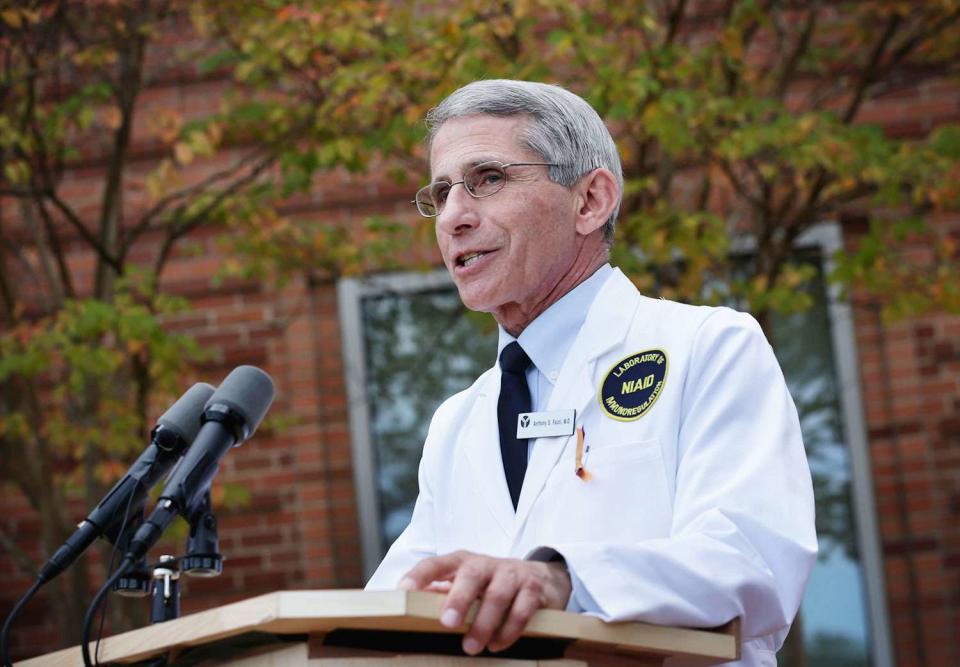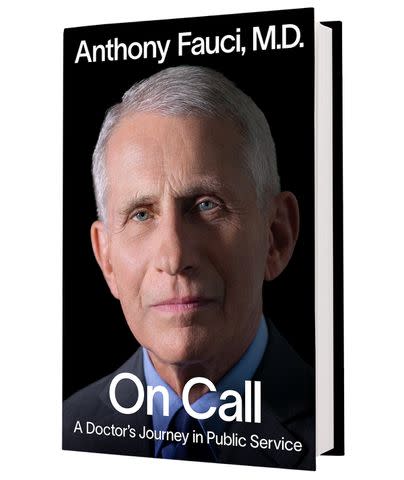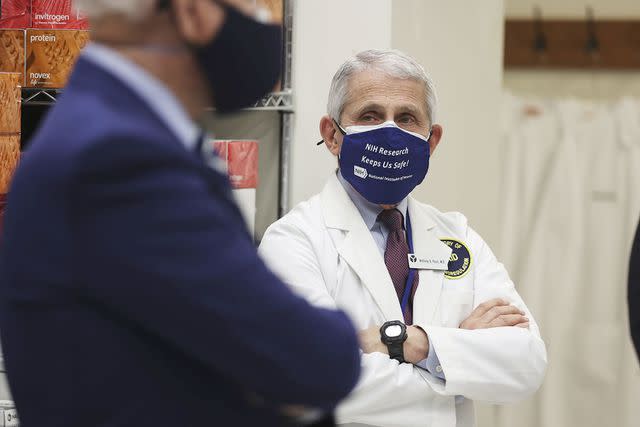Dr. Fauci Stays Hopeful for the Future of Science: 'Better Angels Will Come Out' (Exclusive)
Despite being criticized for his handling of the pandemic and even receiving death threats, the doctor still considers himself a 'cautious optimist'

Alex Wong/Getty
Dr. Fauci speaking to the media in 2014Dr. Anthony Fauci has dedicated his life to medicine, learning early in his career that science, not self-interest, must always be a leader’s priority. While that idea may be unpopular in the current political climate, Fauci believes it will ultimately prevail.
Born and raised in Brooklyn, Fauci, now 83, was the director of the National Institute of Allergy and Infectious Diseases for four decades. During that period, he helped guide public policy on HIV/AIDS, SARS, MERS, avian influenza, swine flu, Zika and Ebola. That earned him the Presidential Medal of Freedom, the National Medal of Science, the Mary Woodard Lasker Award for Public Service and 62 honorary doctoral degrees. He retired from NIAID in 2023 and now serves as Distinguished University Professor at Georgetown University with a joint appointment in the School of Medicine and the McCourt School of Public Policy.
The PEOPLE Puzzler crossword is here! How quickly can you solve it? Play now!

In his new memoir, On Call: A Doctor's Journey in Public Service, he writes about his life, his storied career and lessons he’s picked up along the way.
“I learned that the cause for which you are advocating must be legitimate, worthy, and not motivated by self-interest,” he writes. “Your arguments must be evidence-based and you must be truthful and consistent in your reasons for asking for resources. People quickly see through anything less than that.”
But Fauci also acknowledged that science-based arguments are a hard sell these days.
“I'm not naive,” he tells PEOPLE for a story in this week’s print issue. “I'm aware of the destructive nature of the anti-science attitude that has been accelerating in society over the past several years.” He adds that the problem “didn’t start with the Trump administration,” even if it was “given a big jumpstart with the Trump administration.”

Oliver Contreras/getty
Dr. Fauci speaking with President Joe Biden in 2021Fauci and his family have been the target of personal attacks ranging from harassment to outright death threats after his handling of the COVID-19 pandemic. But even before that, the doctor was no stranger to criticism; ACT UP founder Larry Kramer once called him a “murderer” in a newspaper headline. Nevertheless, he remains pragmatic in advising non-scientists on matters of medicine.
“It was easy to understand that it could be tempting to tell the president or his staff what you thought they wanted to hear so as not to disappoint them,” he writes in his book. “That is exactly why it was crucial to be truthful and consistent in providing information based purely on scientific evidence and best judgment, and nothing else.”
And as time goes on, he hopes the pendulum of public opinion will swing back toward trust in the facts.
“I still feel as somewhat of a cautious optimist that there are the better angels in everybody that will come out,” he explains. “And if people start to really realize that we're much more the same than we are different, we will get away from … that vitriol and that hatred because that's untenable. And even if you are on that camp of being vitriolic, deep down, you gotta realize that that's not a solution. It's just not."
On Call: A Doctor's Journey in Public Service is on sale now, wherever books are sold.
For more People news, make sure to sign up for our newsletter!
Read the original article on People.

 Yahoo News
Yahoo News 
